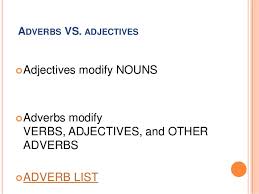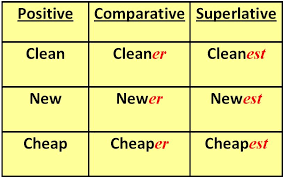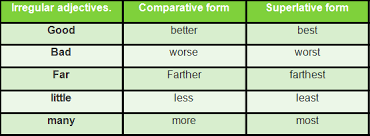Overview
Adjectives are used to modify nouns, while adverbs are used to modify verbs, other adjectives, and adverbs. Adjectives and adverbs often have different forms.
Adjectives and Adverb Forms
Most adverb forms have the form –ly, such as moved slowly, ran quickly, or laughed loudly. The corresponding adjectives do not have the –ly ending, such as the slow train, the quick rabbit, or the loud party. The difference in which form to use is whether the word modifies the verb, such as laughed loudly, or whether the word modifies a noun such as the loud party. Some words such as far, fast, first are the same whether they are used as an adverb or an adjective. For example, in the sentence “They traveled far across the mountains,” far is an adverb, modifying traveled, but in the sentence “The far mountain range has sharp peaks,” far is an adjective, modifying mountains. However, verbs describing senses such as feel, look, smell, sound, and taste, as well as linking verbs such as appear, be, become, and seem, take an adjective to describe the subject, such as “The child feels tired,” “That paint looks dry,” or “The ice seems frozen.”
Possessive Forms
Possessive adjectives include adjectives much as my, our, your, their, his, her, and its when modifying nouns. For example, in the sentence, “Their road is rough, “their modifies the noun road, and “Our team won the championship,” our modifies the noun team.
Comparisons
An adjective such as fine can be made comparative by adding –er, such as finer, when comparing two things, such as “The blue cloth is finer than the red cloth.” It can be made superlative by adding the suffix –est, when comparing three or more things, such as, “The white cloth is the finest of all three.” Most regular adjectives, such as friendly, form comparisons that way, such as friendlier, friendliest, or fast, faster, fastest. Longer adjectives and adverbs of more than two syllables use the words more and most or less and least to form comparisons, as more beautiful, most beautiful, more hopeful, most hopeful, and so on.
Irregular Forms
Some adjectives and adverbs do not form comparisons by adding the suffixes –er and –est, but are irregular. For example, bad goes from worse to worst, and good becomes better and best. The adjective far becomes farther and farthest when describing distance.
Interested in English tutoring services? Learn more about how we are assisting thousands of students each academic year.
SchoolTutoring Academy is the premier educational services company for K-12 and college students. We offer tutoring programs for students in K-12, AP classes, and college. To learn more about how we help parents and students in Lake Worth, FL visit: Tutoring in Lake Worth, FL




